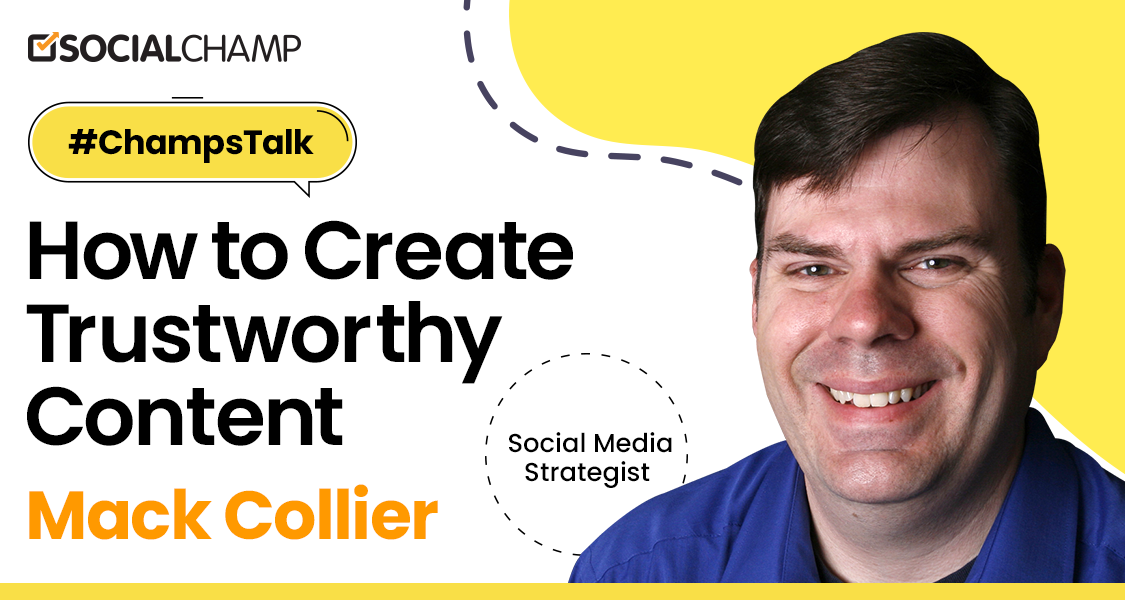Gen Zers, the dynamic force of the digital age, command a whopping 26% share of the world’s population, according to data from Issuu. Further statistics show that this digitally-savvy generation accounts for a staggering 40% of global consumers.
Now, before you think, “Oh, they’re just a bunch of kids glued to their screens,” think again. With numbers like that, you can’t afford to underestimate the power of this cohort in your marketing campaigns.
This blog post serves as a comprehensive guide for everything you need to know about Gen Z marketing. I’ll explain Gen Z marketing, how it’s different from Millennial marketing, and everything in between so you can craft campaigns that speak directly to this influential demographic.
Just a reminder, you should seriously consider investing in a social media management tool if you haven’t already. With features like scheduling, analytics, and team collaboration, it can streamline your marketing efforts and help simplify your Gen Z marketing efforts.
What is Gen Z Marketing?
Gen Z marketing is a dynamic strategy crafted to effectively connect with Generation Z, the cohort born roughly between the late 1990s and early 2010s. This approach recognizes and leverages the distinct characteristics and preferences of Gen Z individuals.
Elevate Your Social Media Game With Social Champ
Streamline your social media efforts, boost productivity, and achieve greater results.
How Gen Z Marketing Is Different?
Gen Z lives and breathes in the digital world. I mean, they’ve grown up with technology and smartphones glued to their hands like a natural extension of their bodies.
So, you can’t just slap an ad in a magazine and call it a day. Nope, you’ve got to meet them where they’re at – ONLINE! of course. If it’s not online, it might as well not exist.
Don’t forget that social media is their playground. Instagram, TikTok, Snapchat—you name it, they’re on it. And they’re not just passive consumers of content. They want to be part of the conversation and engage with brands on a personal level.
So, if you’re not ready to roll up your sleeves and get chatting, you’re missing out on a huge opportunity to connect.
Gen Z Marketing vs. Millennials
When drawing parallels between Gen Z marketing and Millennials marketing, it’s crucial to acknowledge the evolution of consumer behaviors and preferences across these two distinct demographics.
Here are some key differences between marketing to Gen Z vs. Millennials:
Internet Use and Consumption Habits
Gen Z, often referred to as digital natives, has grown up in an era of smartphones, social media, and instant access to information. They are highly adept at navigating digital platforms and consume content primarily through mobile devices.
According to Gen Z marketing statistics by the Pew Research Center, approximately 95% of Gen Z individuals in the United States have access to a smartphone, and 97% use social media daily. In contrast, 93% of Millennials own smartphones, and 86% of them use social media daily.
Given that Gen Z primarily consumes content through mobile devices and social media, marketers should prioritize social media channels when conducting marketing campaigns. Millennials, while also digital-savvy, may also appreciate the familiarity and reliability of traditional media formats.
Attention Span and Content Preferences
Gen Z typically has a shorter attention span and gravitates towards bite-sized, visually engaging content. Recent studies have shown that a significant 40% of Gen Z users prefer platforms like TikTok, Snapchat, and Instagram, where content is short-form and highly visual.
With attention spans shorter than a goldfish’s (8 seconds), Gen Z is drawn to content that delivers quick hits of entertainment and information. Therefore, marketers should embrace short-form video formats like Reels, Stories, and TikTok videos to capture the attention of this influential demographic.
Millennials, while also enjoying digital content, may have slightly longer attention spans (12 seconds), and may engage with longer-form content on platforms like YouTube or blogs.
Authenticity and Transparency Expectations
Millennials value authenticity in marketing, but when it comes to Gen Zers, authenticity is the name of the game. A staggering 82% of these trendsetting individuals have made it clear: they trust a company more when it showcases real customers in its advertising. This preference for authenticity stems from Gen Z’s desire for genuine connections and experiences with brands.
But what exactly does brand authenticity mean to Gen Z? It goes beyond just using real faces in advertisements. Gen Zers are drawn to brands that embody sincerity, transparency, and relatability in their messaging. They want to see real stories, real people, and real values reflected in the brands they support.
So, brands that genuinely embrace authenticity in their advertising stand out in a sea of competition, earning the respect and loyalty of Gen Z consumers.
Influencer Preferences
Influencer marketing has been popular with both generations, but their preferences differ. Millennials were early adopters of influencer marketing and may follow macro-influencers or celebrities.
Gen Z, on the other hand, tends to prefer micro-influencers or authentic content creators who reflect their values and lifestyles.
Communication and Engagement Channels
Gen Z favors instant messaging platforms, such as WhatsApp and Messenger, for communication, while Millennials may still use email or prefer face-to-face interactions.
In terms of engagement channels, Gen Z is drawn to interactive experiences, such as gamification and augmented reality, whereas Millennials may prefer experiential marketing events or branded content.
Related Article: Mastering the Art of Instagram Reels in 2025
10 Gen Z Marketing Strategies and Best Practices for 2025
To effectively connect with and engage Gen Z, your brand must adopt a strategic approach that aligns with their distinctive preferences and values. Here are ten key strategies and best practices for marketing towards Gen Z:
Keep it Real With Your Brand Messaging
“Keeping it real” is more than just a catchy phrase when it comes to marketing to Gen Z—it’s a guiding principle. This generation values authenticity above all else. They can sniff out inauthenticity from a mile away, and they won’t hesitate to call it out.
So, what does “keeping it real” actually mean in practice? Well, it’s about being genuine and transparent in your brand messaging. You can share real stories, real experiences, and real people that resonate with Gen Z’s values and interests.
You can borrow a leaf from Toms, which is always transparent about its philanthropic efforts and provides updates on the impact of its giving programs.
Another thing to do is to avoid portraying your brand as something it’s not or pretending to have values that don’t align with your brand. Instead, embrace who you are and what you stand for. Whether it’s through social media posts, blog articles, or marketing campaigns, authenticity should always be at the forefront.
Embrace Short-Form Video Content
Another thing that Gen Z loves is scrolling through bite-sized videos on their favorite apps like TikTok, Instagram Reels, and Snapchat. They love short-form videos because they are quick, entertaining, and oh-so-easy to consume.
To harness the power of short-form video content, you’ll need to get creative. Think outside the box, show off your personality, and don’t be afraid to take risks.
Here’s one of Nike’s short videos on TikTok that resonates with Gen Z:
@nike We asked dancers at #OwnTheFloor #Paris to express themselves in one move. Which one are you? Tell us in the comments ⤵️
Whether you’re showcasing behind-the-scenes glimpses of your brand, sharing user-generated content, or jumping on the latest viral trend, the key is to keep it fresh, keep it fun, and keep it real.
Optimize for Mobile Viewing
When was the last time you saw a Gen Z-er without their phone glued to their hand? Exactly. They’re constantly on the go, scrolling through social media, watching videos, and consuming content, all from the palms of their hands.
That’s why optimizing your marketing efforts for mobile viewing is an absolute must when it comes to reaching Gen Z. I’m talking about making sure your website loads lightning-fast on mobile devices, your emails are easy to read on smaller screens, and your social media posts are formatted for mobile consumption.
But it’s not just about making things look pretty on a smartphone screen. It’s about creating an experience that’s seamless, intuitive, and, above all, engaging. Gen Z expects nothing less.
Utilize Influencer Partnerships
When it comes to marketing to Gen Z, influencers are like the cool kids on the block—and getting in with them can be a game-changer for your brand. Nearly two-thirds of Gen Zers follow influencers and 63% of them trust influencers over brands. They see these influencers as relatable, authentic, and, most importantly, influential.
So, when an influencer they follow recommends a product or endorses a brand, it’s like getting a stamp of approval from a trusted friend. That’s why partnering with influencers is a smart move for Gen Z digital marketing.
Whether it’s a micro-influencer with a niche following or a mega-influencer with millions of followers, these influencers have the power to sway the opinions and purchasing decisions of Gen Z consumers.
Here’s how McDonald’s involved Cardi B and Offset in a short video:
@mcdonalds Cardi x Offset x McD dropping 2.14
When partnering with influencers, it’s crucial to choose those who align with your brand values and can authentically represent your products or services. Look for influencers who share similar interests, beliefs, and aesthetics as your target audience.
Showcase User-Generated Content
According to Gen Z marketing statistics, 61% of Gen Zers prefer user-generated than other content types.
You can tap into the magic of user-generated content by encouraging your customers to share their experiences with your brand on social media. Whether it’s through a branded hashtag, a photo contest, or a shout-out campaign, give them a reason to show off how much they love your products.
An example of a brand that uses user-generated content in its marketing campaigns is GoPro. The action camera company encourages customers to share their GoPro adventures using the hashtag #GoPro and select the best content to showcase on their platforms.

GoPro So, get out there, get your customers talking, and watch as their love for your brand spreads like wildfire across social media. Trust me, it’s a marketing strategy that’s worth its weight in gold.
Support Social Causes
According to the Pew Research Center, Gen Z is passionate about social and environmental issues. Whether it’s fighting for climate justice, promoting diversity and inclusion, or advocating for mental health awareness, there’s no shortage of causes that resonate with Gen Z.
So, if you want to capture Gen Zers’ attention and earn their loyalty, you’ve got to show that you’re more than just a profit-driven corporation—you’re a force for good in the world.
But it’s not enough to just pay lip service to social causes. If you’re going to support a social cause, you’ve got to do it authentically and wholeheartedly.
Whether it’s donating a portion of your profits to charity, participating in community service projects, or advocating for policy change, show Gen Z that you’re committed to making a real difference in the world.
See how Ben & Jerry’s, a multi-national ice cream and frozen yogurt maker, does this:
Supporting social and environmental causes isn’t just good for your brand—it’s good for society, too.
Create Interactive and Immersive Experiences
Gen Z has grown up in a world where technology is everywhere, so it’s natural for them to gravitate towards immersive tech-driven experiences. Whether it’s a virtual reality game, an augmented reality filter, or a live-streamed event, these experiences transport Gen Z into a whole new world where they can interact, explore, and engage like never before.
When creating interactive and immersive experiences that resonate with Gen Z, you’ve got to think outside the box and get creative. Think of the kind of experiences they would find exciting or delightful.
Take The North Face, for example. The company has created immersive brand experiences that bring the spirit of exploration and adventure to life. See one of their immersive videos here
@thenorthface Turns out skiers take the “action” part of “lights, camera, action” pretty seriously. #behindtheshoot #onlocation #thenorthface
Maybe it’s a virtual tour of your product, where they can explore every nook and cranny before making a purchase. Or perhaps it’s a gamified challenge that challenges their skills and rewards them with exclusive prizes. The key is to make it fun, make it engaging, and make it memorable.
Be Inclusive and Diverse
Gen Z is the most diverse generation yet, and they’re not just looking for brands that reflect their own identities—they’re looking for brands that celebrate diversity and inclusivity in all its forms.
That means showcasing people of all backgrounds, genders, races, and identities in your marketing campaigns. It also means representing a wide range of body types, abilities, and experiences. And it means making sure that everyone feels seen, heard, and valued.
An example of a brand that has been inclusive and diverse in its marketing campaigns is Dove. This brand has been a pioneer in promoting body positivity and self-esteem through its “Real Beauty” campaign. See one of the campaigns here:
So, how can you ensure that your Gen Z marketing strategies are truly inclusive and diverse? Start by taking a good, hard look at your brand and your messaging. Are you representing a diverse range of voices and perspectives? Are you actively seeking out and amplifying underrepresented voices?From there, it’s all about being intentional in your efforts. Whether you’re casting models for a photo shoot, selecting images for your website, or crafting copy for your social media posts, make sure that diversity and inclusivity are top of mind.
Listen and Respond to Feedback
Gen Z grew up in an era of social media, where everyone’s thoughts and opinions are just a tweet or a post away. They’re used to having their voices heard and their feedback acknowledged, and they expect the same from the brands they support.
That’s why listening and responding to feedback is crucial when it comes to connecting with Gen Z. Whether it’s positive praise, constructive criticism, or even outright complaints, every piece of feedback is an opportunity to learn, grow, and improve.
Starbucks is one of the brands that are known to interact with their audience. See here:
To ensure that you’re listening and responding to feedback in a way that resonates with Gen Z, you should start by being proactive in seeking out feedback. Whether it’s through surveys, polls, or social media listening tools, make sure that you’re actively soliciting input from your audience.
From there, it’s all about being transparent and responsive in your communication when someone takes the time to reach out with feedback, acknowledge their concerns, thank them for their input, and let them know that you’re taking their feedback seriously.
Listening and responding to feedback not only helps you improve your marketing efforts, but it also helps you build stronger relationships with your audience.
Stay Agile and Experiment
This tech-savvy generation is accustomed to a fast-paced, ever-evolving digital landscape. As such, they expect the brands they support to keep up.
Staying agile and experimenting isn’t just about throwing spaghetti at the wall and seeing what sticks. No, it’s about being strategic in your approach, taking calculated risks, and learning from both successes and failures.
To stay agile, you should keep a close eye on emerging Gen Z marketing trends and technologies. Whether it’s the latest viral meme, the hottest new app, or the next big social media trend, make sure you’re staying ahead of the curve and ready to pivot when necessary.
The next step is all about testing, tweaking, and refining your approach based on real-time feedback and data. Whether it’s through A/B testing, audience segmentation, or analytics tracking, ensure you’re constantly learning and iterating on your Gen Z marketing strategies to ensure maximum impact.
Make Informed Decisions With Social Champ
Gain valuable data, track performance metrics, and optimize your campaigns for success.
Conclusion
From their preference for authenticity and short-form video content to their passion for social causes and inclusivity, Gen Z presents both challenges and opportunities for marketers. Embracing authenticity, leveraging digital channels, supporting social causes, and creating engaging experiences can help you build meaningful connections with Gen Z consumers and drive brand success.
In addition to using the above Gen Z marketing strategies, investing in a social media management tool like Social Champ can be invaluable. With features like content calendar management, post scheduling, analytics, and audience targeting, this tool empowers you to efficiently manage your social media presence across multiple platforms and effectively engage with Gen Z consumers.











